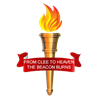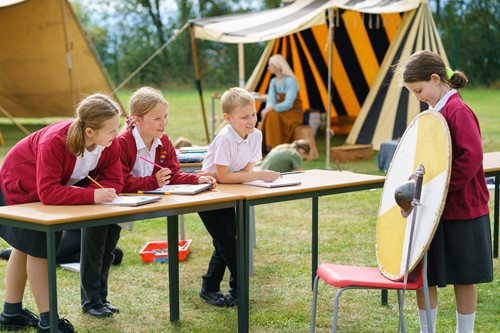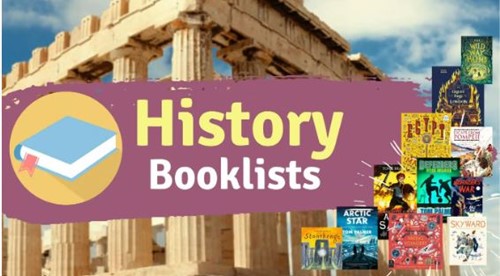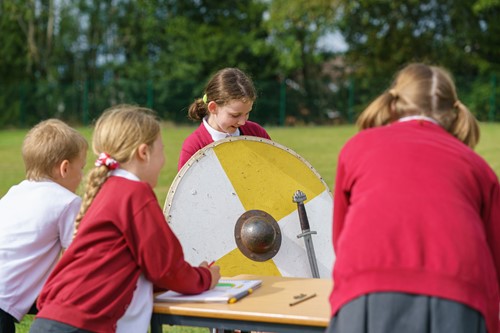History Curriculum Statement
Intent
At Clee Hill Community Academy our curriculum supports pupils to develop their enquiry skills, use evidence available to them, which they will use to draw conclusions about what life was like in the past, both in Britain and the wider world, helping them to understand the world today.
The curriculum supports pupils in building their understanding of chronology in each year group, making connections over periods of time and developing a chronologically secure knowledge of History. We hope to develop pupils’ understanding of how historians study the past and construct accounts and the skills to carry out their own historical enquiries.
Implementation
In order to meet the aims of the National curriculum for History and in response to the Ofsted Research review into History, we have identified the following key strands:
- Substantive - knowledge of the past
- Disciplinary - how historians find out about the past and how they shape their arguments
- Historical enquiry.
- Chronological awareness
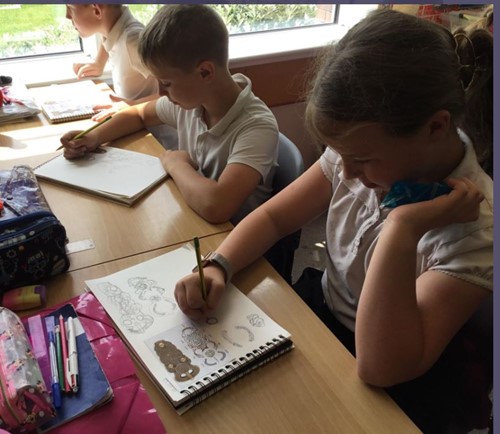
Substantive Knowledge
Substantive knowledge refers to the knowledge of the past, people and events. This includes topic knowledge, chronological knowledge and substantive concepts. Substantive concepts are the essential, underpinning, in-depth knowledge of a topic or time period that supports further historical learning and thus supports pupils to generate more knowledge. The Substantive concepts which underpin our History Curriculum are:
 Invasion and Empire
Invasion and Empire
 Settlement
Settlement
 Trade
Trade
 Equality
Equality
 Monarchy
Monarchy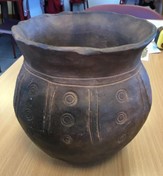
 Church & Religion
Church & Religion
Disciplinary Knowledge
Disciplinary knowledge is knowledge about how historians investigate the past, and how they construct historical claims, arguments and accounts - i.e. it is the knowledge of how to undertake a historical enquiry. Pupils learn disciplinary knowledge within relevant historical contexts through application to substantive knowledge. They answer key questions and this enables them to place their historical knowledge in a broad context. It helps pupils to understand the different version of the past can be constructed, and that historical narrative is partially dependent upon viewpoint.
In our History Curriculum we have 6 areas with which the pupils undertake historical enquiry:
- Change and Continuity
- Similarities and Difference
- Cause and Consequence
- Historical Significance
- Sources of Evidence
- Historical Interpretations
Our scheme follows the spiral curriculum model where previous skills and knowledge are returned to and built upon. For example, children progress by developing their knowledge and understanding of substantive and disciplinary concepts by experiencing them in a range of historical contexts and periods.
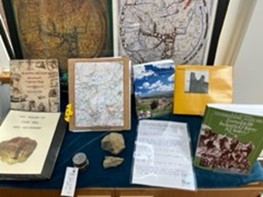
Our History Curriculum emphasises the importance of chronological knowledge across all strands to support the development of substantive concepts, historical skills and historical enquiry. These strands are interwoven through all our history units to create engaging and enriching learning experiences which allow the children to investigate history as historians do.
The whole school History Overview works on a 2-year cycle. History is studied once per term over six lessons, alternating each half term with geography units. This allows children to have a clear understand of what history is. Each six-lesson unit has a focus on chronology to allow children to explore the place in time of the period they are studying and make comparisons in other parts of the world. Children will develop their awareness of the past in Key stage 1 and will know where people and events fit chronologically. This will support children in building a ‘mental timeline’ they can refer to throughout their learning in Key stage 2 and identifying connections, contrasts and trends over time. Timelines are progressively built upon as a child progresses through school, with teachers regularly recapping on prior knowledge and building on chronological awareness.
Although we teach all areas of the National Curriculum for History, due to the school organisation, not all pupils are guaranteed full coverage. This is a decision made by the school as the benefit of the having a curriculum that developed rich, connected schemas to create, develop and embed knowledge links outweighed the need to cover all areas of the National Curriculum.
History and the EYFS
In the EYFS, understanding the world through History is an important part of our curriculum. ‘Understanding the World’ encompasses a range of early historical skills and knowledge in Early Years. Children are encouraged to talk about past and present events in their own lives and in the lives of family members. Practitioners share historical stories, objects and pictures to prompt discussion using past, present and future tense. Children are encouraged to develop a sense of change over time and are given opportunities to differentiate between past and present by observing routines throughout the day, growing plants, observing the passing of seasons and time and looking at photographs of their life and of others. Practitioners encourage investigative behaviour and raise questions such as, ‘What do you think?', ‘Tell me more about?', 'What will happen if..?', ‘What else could we try?', ‘What could it be used for?' and ‘How might it work?' Use of language relating to time is used in daily routines and conversations with children for example, ‘yesterday', ‘old', ‘past', ‘now' and ‘then'. Alongside planned learning, children are encouraged to follow their own interests and create ideas around their own fascinations.
Our Early Years Curriculum
As part of our EYFS curriculum, there are milestones which have been carefully constructed with an end goal, to reflect our own dynamics and environment to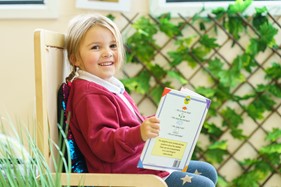 meet our children’s needs, whilst ensuring a stimulating, challenging and diverse curriculum. Although many aspects of the Early Years Curriculum develop a solid understanding for History in Year 1, 'An Eager Explorer' is of particular importance to show the progression of learning through Nursery and Reception.
meet our children’s needs, whilst ensuring a stimulating, challenging and diverse curriculum. Although many aspects of the Early Years Curriculum develop a solid understanding for History in Year 1, 'An Eager Explorer' is of particular importance to show the progression of learning through Nursery and Reception.
EYFS Curriculum milestones and goals

Supporting SEND children across the history curriculum
Pupils with special educational needs and/or disabilities are fully included in the provision for History within school. The school SENDCo liaises with teaching and support staff on how best to support children with special educational needs. We teach using a mastery approach and ensure children have the same outcome in lessons but adapt the resources and environment to support them. Extra support might include:
- Pre-teaching of the topic specific vocabulary
- Displays/pictures to enhance learning for visual learners
- TA support to access information provided
- Children produce evidence of their learning in an accessible way – photos/PowerPoint/pictures/etc
- Quiet spaces to be able to focus and concentrate
- Given time to formulate answers
- Resources to prompt knowledge of prior learning – look through class books for reference
- Parents given curriculum information in advance to share at home
Impact
The impact of our curriculum is that:
- Pupils have secure chronological knowledge
- Pupils confidently ask and answer questions about the past
- Pupils apply previously taught learning of key concepts to current learning
- Pupil voice demonstrates that they enjoy history and recall their learning over time.
- Pupils can explain which sources are most useful and identify relevant information to support their research
- Pupils are prepared for their next stage of education
